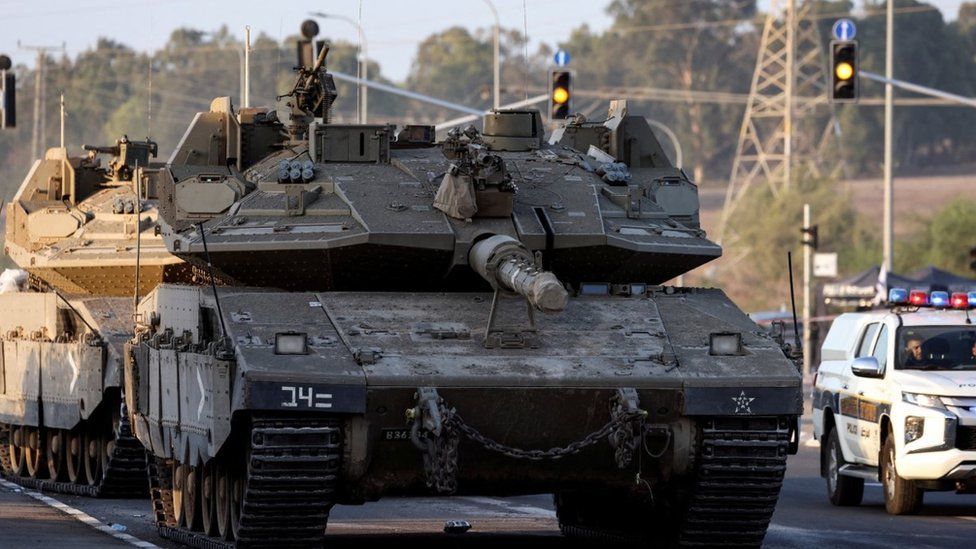-

-
-
Loading

Loading

Israel has stated that it intends to completely cut ties with Gaza as part of its military campaign in the area. Israeli Defence Minister Yoav Gallant expressed that once Hamas is defeated, Israel will no longer be responsible for the well-being of the people in Gaza. Prior to the conflict, Israel supplied Gaza with most of its energy and monitored imports into the territory. However, Israel continues to launch strikes on Gaza and aid remains blocked at the border with Egypt. The ongoing bombardments are a response to attacks by Hamas gunmen on Israel, resulting in numerous casualties and hostages. Israel is now preparing for a ground offensive. Gallant explained that the campaign is divided into three phases: destroying Hamas's infrastructure, eliminating pockets of resistance, and removing Israel's responsibility for life in Gaza. Although Israel withdrew from Gaza in 2005, the UN still considers it occupied land and deems Israel accountable for the basic needs of its people. In the past, Israel permitted Gazans to cross the border for work and supervised imports to prevent weapons from reaching Hamas. However, after the recent attacks, Israel has cut off electricity, food, and medicine supplies. The situation in Gaza is described as "beyond catastrophic" by the UN. The US and Egypt have struck a deal to provide some relief supplies to Gaza, but the aid has yet to reach its destination. Humanitarian organizations highlight the urgent need for more aid. UN Secretary-General Antonio Guterres visited the border crossing and urged for the entry of aid trucks, emphasizing their critical importance to the lives of people in Gaza. In the meantime, Palestinian Authority President Mahmoud Abbas has confirmed his participation in a summit in Cairo to seek a ceasefire in the Israeli-Palestinian conflict. The summit, hosted by Egyptian President Abdul Fattah al-Sisi, will focus on achieving a two-state solution and involve discussions among world leaders, including Guterres, representatives from the EU, and various Arab and European countries.